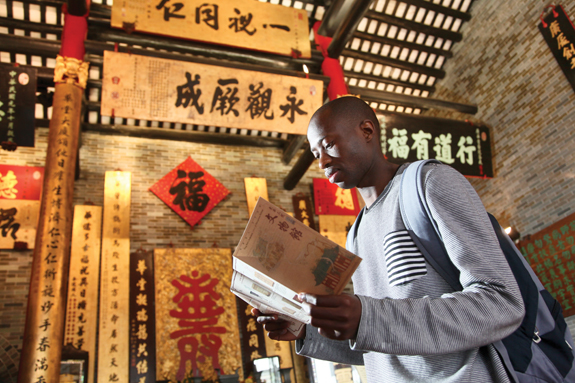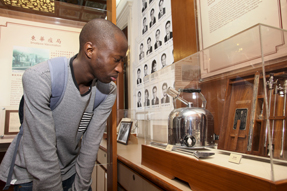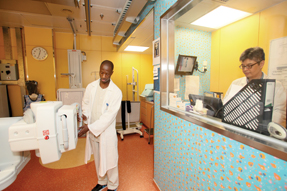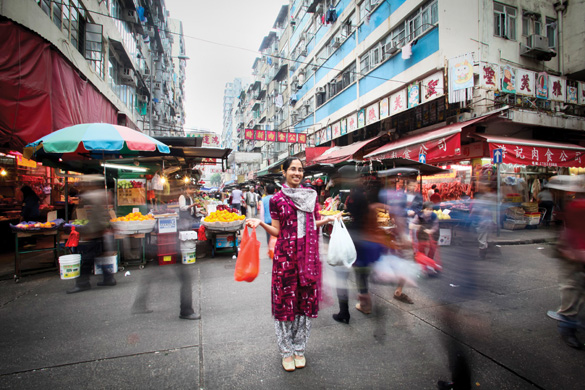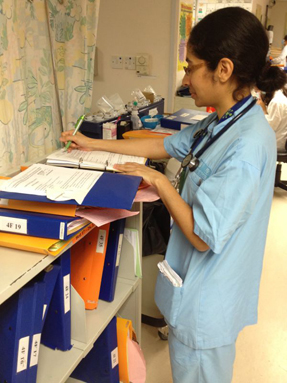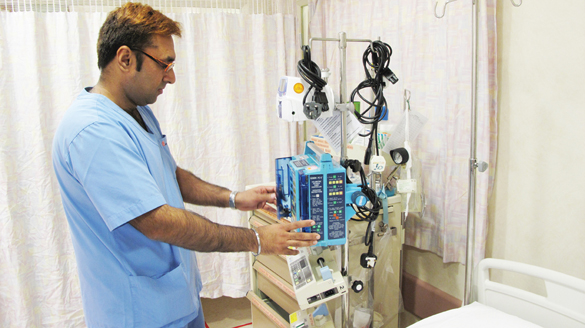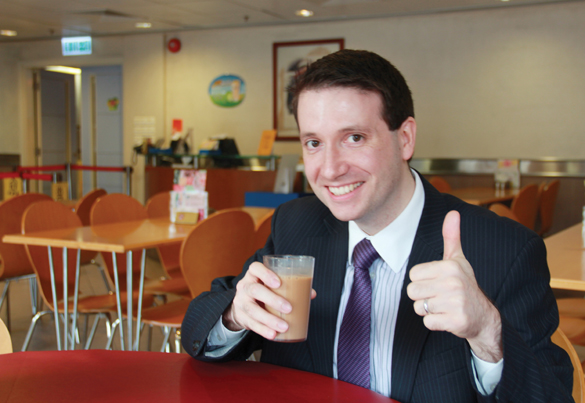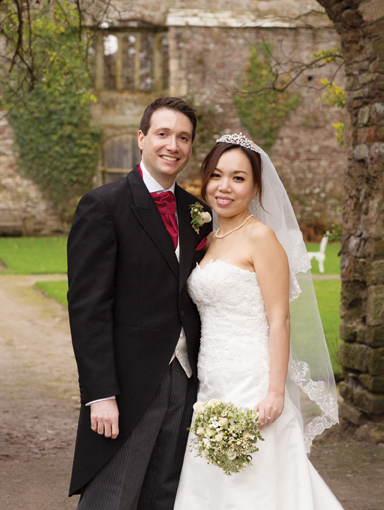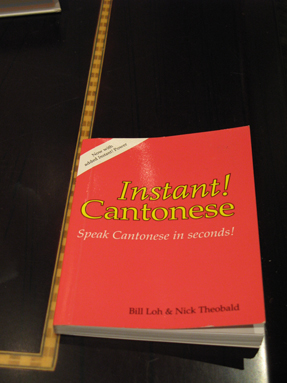Indian male nurse is also a good trilingual interpreter
Singh Karamjit (Jack) has a similar background to Deepa, having also grown up in Hong Kong. He joined the Hospital Authority (HA) in 1995 and, after working as a nurse in the department of surgery, the detention ward and department of medicine, he now works in the adult intensive care unit at Queen Mary Hospital. He originally decided to study for a nursing certificate with a view to applying for a post as an officer in the Hong Kong Correctional Services Department (CSD). But, fortunately, he discovered that nursing itself is a meaningful profession, so he dropped his original plan.
Jack came from a working-class family, and he lived in a very small room together with four of his relatives. He therefore sought a stable job after he graduated from high school.
"At the outset, I thought I would first get the nursing certificate and then apply CSD's officer post, which would help to put me on a better career path. However, I found that being a nurse is a very meaningful role. In particular, I can help my Indian friends, which gives me great satisfaction. Of course, working in the HA also allows me to take care of the livelihood of my family as well as myself. That has motivated me too."
Jack obviously regards Hong Kong as his home because he was born and brought up here. He is deeply impressed by the excellence of Hong Kong's public healthcare system, which is cheap for its users, and its quality compared favourably with private hospitals.
Besides working as a nurse, Jack sometimes helps as a 'volunteer interpreter', because he speaks Hindi and English, as well as very fluent Cantonese. "My parents do not speak Cantonese, so I used to act as their spokesperson for all their external communication when I was young; such as buying food in the market or asking the school for leave of absence."
Jack's practical training over the years has made him fully proficient in all three languages, which has made him a great asset to the hospital. "My most-interestingexperience has been translating for an ethnic-Chinese doctor who cannot speak fluent Cantonese and a local Cantonese-speaking family." Although they are all Chinese, they need an Indian to help them communicate with each other!

